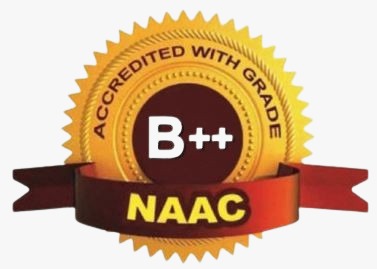About
Sir Isaac Newton College of Engineering and Technology takes great pride in its advanced library facility, which encompasses a spacious carpeted area spanning 450 square meters. This library serves as a cornerstone of our commitment in providing an exceptional learning environment for our students and faculty. Our library boasts an extensive collection of engineering books, which includes both national and international journals. It includes a vast collection of 13,975 volumes, spanning approximately 4607 titles. This comprehensive repository of knowledge ensures that our academic community has access to a wide array of research materials, fostering academic excellence and innovation.
Working Hours
Open: 9.00 AM to 6.00 PM on all working days
Close: On Sundays and Govt. holidays
SERVICES
Books Issue/ Return/Renewal and Online Renewal
OPAC– Online Public Access Catalogue (Books & Articles Search)
Book Reservation
E-Books, E-Journals
RULES & REGULATIONS
Silence must be maintained inside the library.
ID cards must be displayed upon entering the Library.
Personal books, bags, and other belongings (except valuables) must be deposited on the personal belongings shelf at the entrance.
ID cards must be scanned at the gate computer.
Teaching staff may borrow up to 10 books for a one- month period.
Students may borrow up to 6 books for a 14-day period.
Books must be returned on or before the due date.
Each borrowed book can be renewed only once.
Books can be renewed online, provided there is no reservation
Reference materials (e.g., reference books, dissertations, periodicals) are to be used only inside the library.
The physical condition of books must be verified before borrowing them.
If a library book is lost, it must be replaced with the latest edition or the double cost of the book must be paid into the account.
Lights and fans must be turned off when not in use or when leaving the reading halls.
Misuse of library facilities is an offence and will result in punishment as determined by the competent authority.
Institutional Membership
DELNET(Developing Library Network)
LMS(Learning Management System)
NDLI
LIBRARY STAFF TEAM
| LIBRARY STAFF TEAM | ||||
|---|---|---|---|---|
| Name | Designation | Qualification | Phone No | |
| Dr.T.Devadhas | Librarian | M.Lib.I.Sc., Ph.D | 9994489271 | devadhas @sincet.ac.in |
| Ms. A.Nathiya | Library assistant | BSC comp | 9345556404 | sinthiya0503199@gmail.com |
Library Contact
Dr.T.Devadhas
Librarian
Sir Isaac Newton College of Engineering and Technology
Mail Id: devadhas @sincet.ac.in
Value Added Courses
| S.No | Name of the course | No of students | Duration(hours) |
|---|---|---|---|
| 1 | Unxt programme by Unnati foundation | 7 | 90 |
| 2 | IABS-Integrated Approach to Building Services | 46 | 112 |
| 3 | Microsoft Office | 60 | 30 |
Innovative teaching
Innovative teaching embodies a proactive approach aimed at seamlessly integrating cutting-edge teaching strategies and methods, widely acknowledged as a fundamental avenue for attaining a competitive advantage.
• Embracing Innovative Teaching Approaches : Proactively integrating novel teaching strategies and methodologies is a recognized method for gaining a competitive edge in education.
• Leveraging Technology-Enhanced Learning : Faculty effectively utilizes advanced ICT-based teaching tools, including smart classrooms and LCD projectors, to enhance the learning experience and contribute to students' academic improvement.
• Enabling Blended Learning Environments : Our Wi-Fi-enabled campus fosters blended learning, offering access to e-learning websites and resources that complement traditional classroom instruction.
• Utilizing Google Classroom Integration :We employ Google Classroom, an application designed to enhance the learning journey. It facilitates interactive engagement with students through the sharing of technical content, lecture notes, and assignments.
• Promoting Continuous Learning : Both faculty members and students engage in online courses offered by NPTEL within their areas of interest. This practice allows them to stay updated on current trends and develop expertise across multiple domains.
• Enriching Learning Through Webinars : Engaging webinars complement conventional classroom teaching, serving as an effective medium for knowledge transfer and interactive learning experiences.
• Encouraging Professional Development : Faculty members are actively encouraged to participate in Faculty Development Programs (FDPs), short-term courses, and staff development initiatives on advanced topics. This ensures that they remain well-equipped with the latest knowledge and skills.
Laboratory Details
Our department has eight well equipped laboratories
1. Farm Machinery Laboratory:
The Farm Machinery laboratory of the college is well equipped with modern energy-efficient farm machines like disc plough, disc harrow, sprayer, seed drill, rice transplanter, weeder and all kinds of machines required for different farm operations.
2. Farm Power Lab:
The lab has facility for exposing the students to tractors, engines and their systems. The lab contains cut sections and models for various tractors and engine and their system such as crank arrangement, valve system, lubrication system, fuel system, gear system, hydraulic system etc.
3. Material Testing Lab:
This lab is well equipped with equipment like Universal Testing Machine, Fatigue, Impact, Torsion & Hardness testing machines to evaluate the strength & properties of different materials.
4. Soil Mechanics Lab:
This lab is essential as soil possess a variety of physical properties of soil. Soil mechanics lab is well equipped with all equipments required for identification and classification of soils.
5. Post-Harvest technology lab:
The Processing and food engineering laboratory is well equipped with various kinds of modern equipments for the training of UG students. Some of the equipments are Porosity apparatus, Coefficient of friction apparatus, Paddy thresher, Oil expeller and Groundnut decorticator
6. Irrigation Laboratory:
A laboratory with models of almost all the irrigation and drainage is available which provides a means for effective training of the students. Some of the equipments are evaporimeter, double ring infiltrometer, irrigation automation working model, drip and sprinkler irrigation setup,
6. Irrigation Laboratory:
Faculty members are actively encouraged to participate in Faculty Development Programs (FDPs), short-term courses, and staff development initiatives on advanced topics. This ensures that they remain well-equipped with the latest knowledge and skills.

